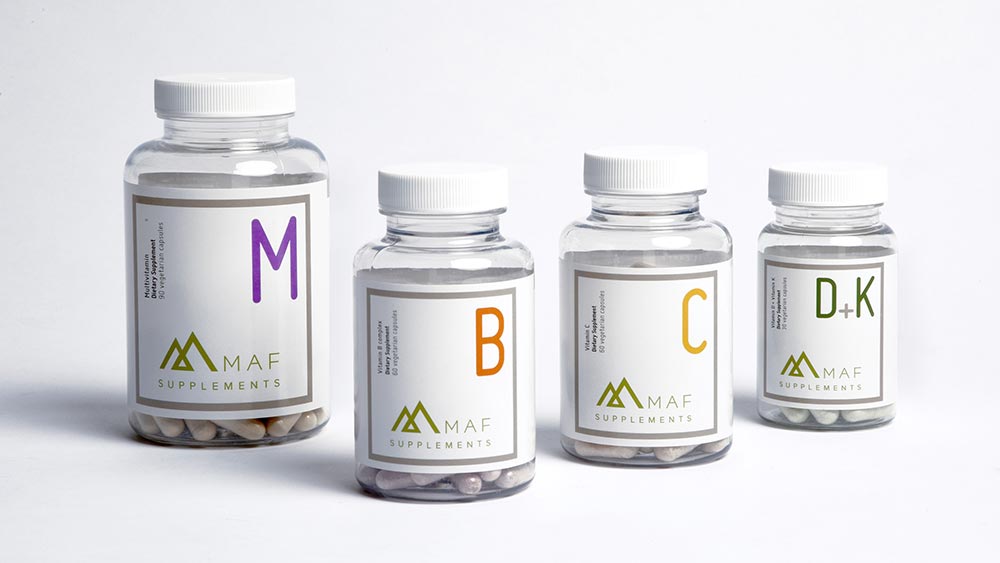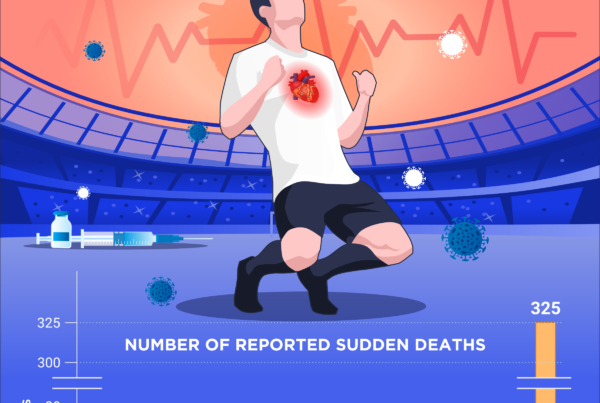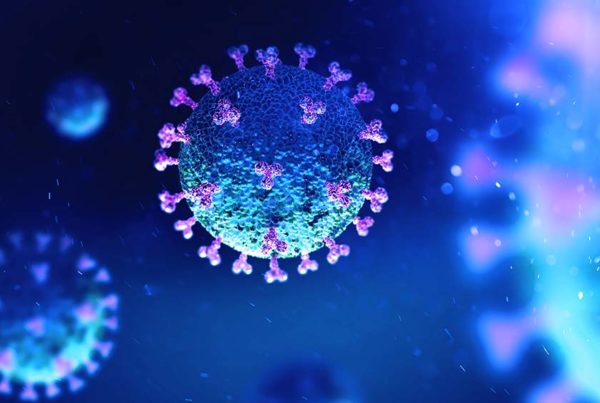
The seemingly unlimited array of pills, powders and tonics appear difficult to sort through. However, just as with food, there are only two types of dietary supplements.
Editor’s Note: MAF supplements, formulated by Dr. Phil Maffetone, are now available WORLDWIDE. Click here for more information.
There are two types of cuisine in the world today — junk food, and natural food. Dietary supplements follow the same model.
The fact is, we should all get as much of our nutritional needs from real food, a process that begins by avoiding junk food and replacing it with healthy vegetables, berries, eggs, meats, and other natural, unprocessed and healthy items.
Health-conscious consumers avoid synthetic, artificial and other unnatural ingredients. Yet most dietary supplements contain synthetic vitamins, overly processed powders, and unnatural high-dose nutrients shown to be dangerous. Consider that:
- Most vitamin C is synthetic, listed on the label as ascorbic acid.
- Many products contain inactive nutrients less likely to be metabolized well by the body; these include all the B complex vitamins, and vitamin D2.
- Some, like the inactive B vitamin folic acid, can be particularly dangerous.
- The most popular vitamin E products have potentially unhealthy high doses, such as 400 IU, and only contain one of eight vitamin E components (as found in natural foods).
- Most dietary supplements contain fillers, coloring agents and other unnatural or unwanted ingredients, including sugar.
- Vitamins used in fortified foods (even so-called natural products) are also mostly synthetic. (Most fortified foods are junk foods.)
- Sometimes food concentrates are used in dietary supplements, but most are heated to very high temperatures destroying many nutrients.
The science of these supplements demonstrate these problems. For example, doses of 1,000 mg of vitamin C a day have been shown to impair energy systems and endurance, and fat-burning, and can adversely affect the antioxidant system (a key immune and aging regulator).
The Science
Government agencies, such as the U.S. Food and Drug Administration (FDA), regulate dietary supplements, although much differently than over-the-counter and prescription drugs. Unlike drugs, the FDA does not approve supplements for safety or effectiveness. The result is that we don’t know whether most dietary supplements are of therapeutic value, or have potential unhealthy side effects, except for those made from real foods, which contain nutrients known to have great therapeutic effects.
One thing we do know is that many people mistakenly think gobbling down a cheap one-a-day type pill means they don’t have to eat as well.
The FDA also says that dietary supplement labels may contain a cautionary statement — but the lack of such a statement does not mean no adverse effects are associated with the product, or that it is actually effective.
Most ingredients contained in most dietary supplements have not been shown to be safe or effective.
In addition, the FDA claims:
- Dietary supplements are not intended to treat, cure, or alleviate the effects of diseases. Yet the nutrients in real foods can and have for millions of years.
- Using supplements improperly can be harmful. Eating natural foods cannot cause harm (unless you’re allergic or gorge yourself).
- Using a dietary supplement as a substitute for prescription drugs could be harmful, even life-threatening. Eating the right foods and avoiding the wrong ones could help you avoid, reduce or eliminate the need for medication.
- Some dietary supplements can have unwanted effects when combined with prescription drugs, or before, during, or after surgery. This is rarely true of natural foods (except in serious allergies).
- The term natural on a label does not ensure the product is wholesome or safe.
So dietary supplements made from food that contain nutrients can be valuable, safe and effective.
Here’s where the food connection is important: For decades, scientists have shown the value of nutrients in food to be protective against disease and dysfunction, effective in treating poor health, and safe.
Examples of real-food dietary supplements include fish oil, unprocessed egg white or whey protein powder, psyllium, and other herbs and spices.
In addition, many dietary supplements are taken to treat secondary problems, not the causes. For example, vitamin C for colds (associated with poor immunity), digestive enzymes for gut symptoms (often caused by junk food), B complex for stress (managing stress is important, then it’s best to use active natural forms of all B vitamins).
Why I created my own dietary supplements
Many people know my career includes formulating unique natural products, including dietary supplements. Having always recommended eating natural, healthy, organic foods for optimal nutrition, creating a unique line of dietary supplements made from the same foods was an obvious choice. After years of research and development, I produced the first line of real food-based, certified-organic dietary supplements more than 20 years ago. I continue doing that today.








